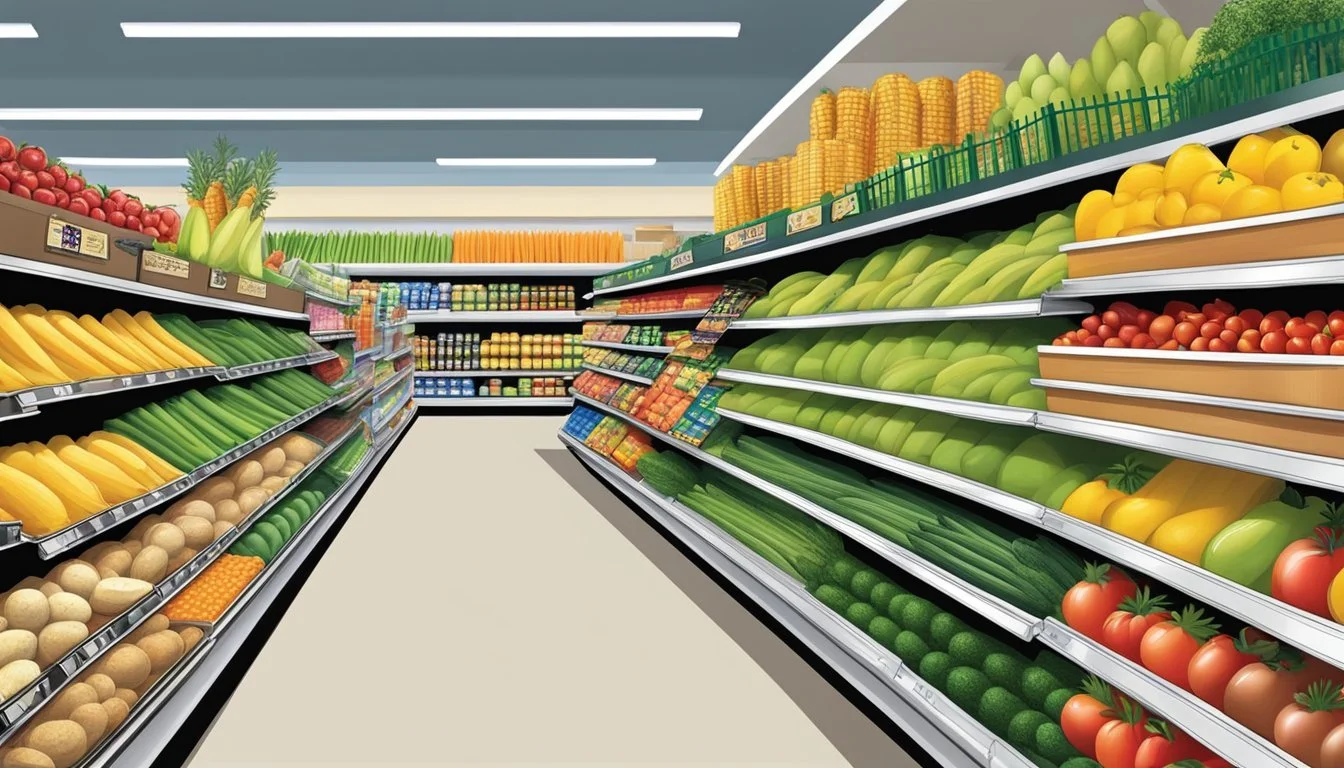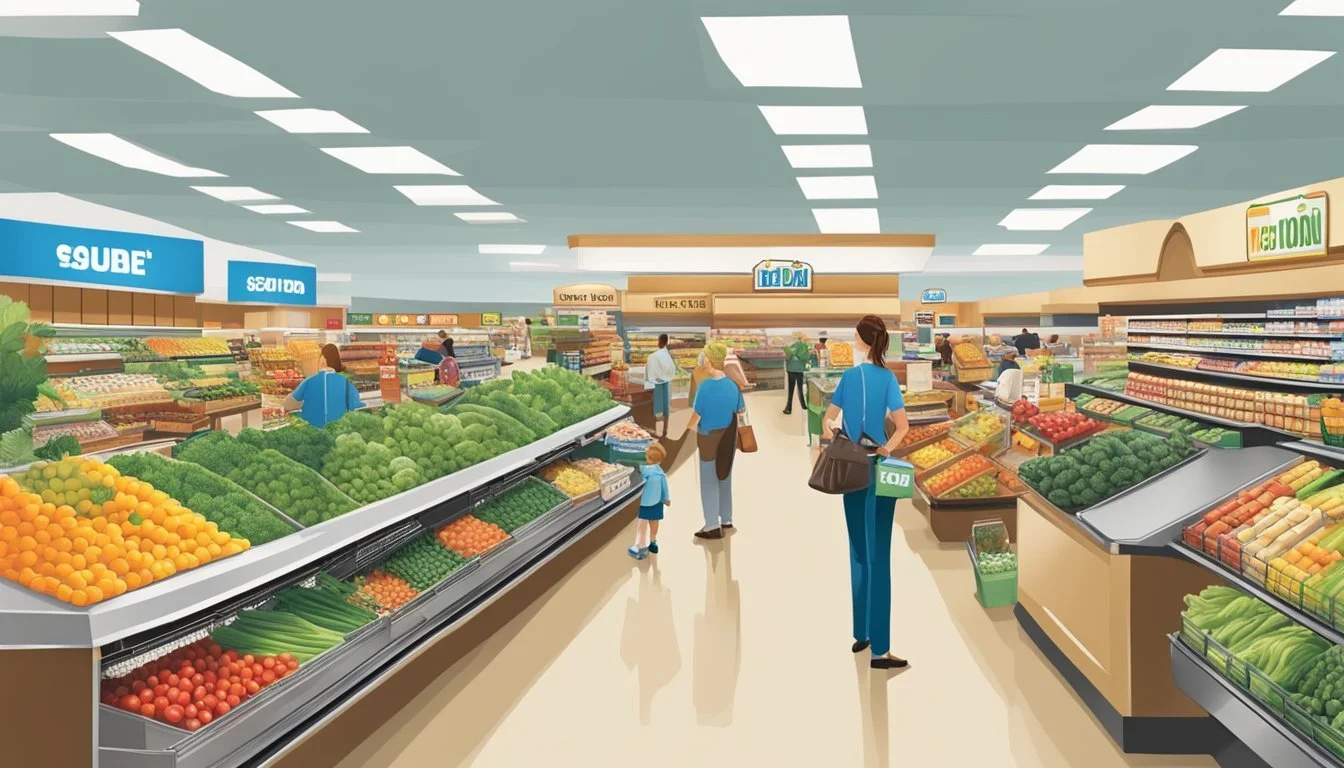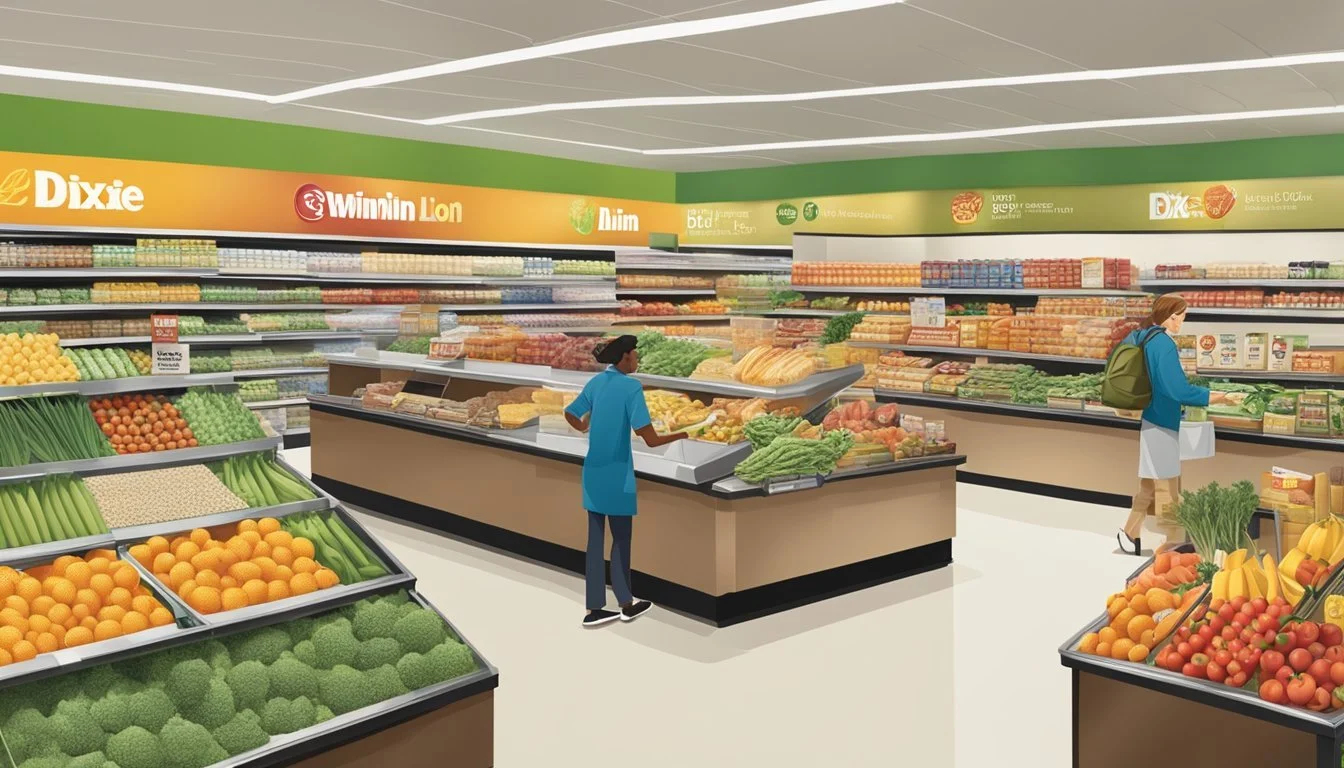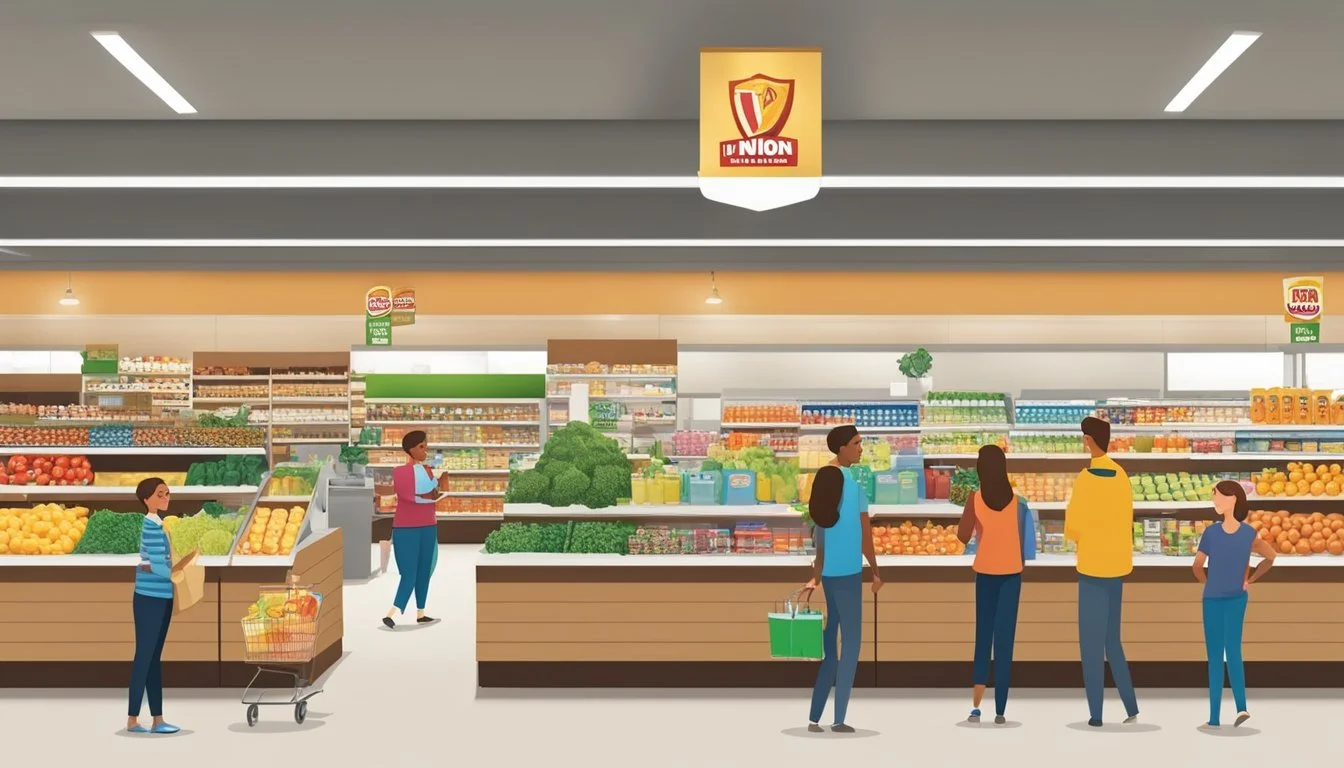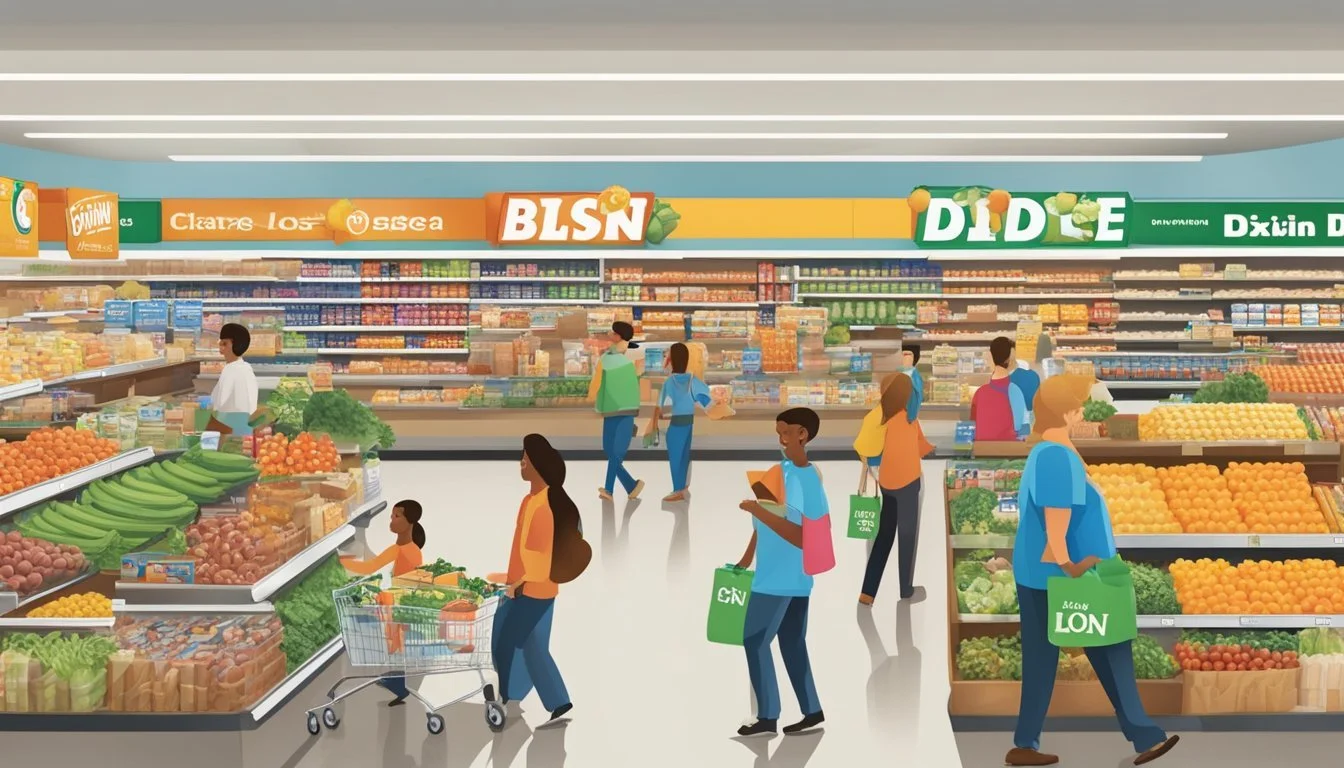Food Lion vs Winn-Dixie
Comparing Prices, Selection, and Customer Experience
Food Lion and Winn-Dixie are two prominent grocery store chains in the United States, both serving customers with a wide range of products. These supermarkets compete for shoppers' attention and loyalty in various regions, particularly in the southern states. While Winn-Dixie tends to offer slightly higher quality products and a better shopping experience, Food Lion often provides more competitive prices for budget-conscious consumers.
Shoppers considering these two stores often weigh factors such as pricing, product selection, store atmosphere, and customer service. Food Lion has built a reputation for affordability, frequently offering lower prices on everyday items. Winn-Dixie, on the other hand, focuses on providing a more upscale shopping experience with a broader range of specialty products and prepared foods.
The choice between Food Lion and Winn-Dixie ultimately depends on individual preferences and priorities. Those seeking the lowest prices may lean towards Food Lion, while shoppers who value a more diverse product selection and enhanced store ambiance might prefer Winn-Dixie. Both supermarkets strive to meet the needs of their target demographics, contributing to the competitive landscape of the grocery industry.
Company Backgrounds
Food Lion and Winn-Dixie are prominent supermarket chains with deep roots in the southeastern United States. Both have evolved significantly since their founding to become major regional grocery store players.
History of Food Lion
Food Lion began as a single store called Food Town in Salisbury, North Carolina in 1957. Founded by Wilson Smith, Ralph Ketner, and Brown Ketner, the company focused on offering low prices and no-frills shopping. In 1974, Belgian retailer Delhaize Group acquired Food Town, fueling rapid expansion.
The chain rebranded as Food Lion in 1983 to facilitate growth into new markets. Throughout the 1980s and 1990s, Food Lion aggressively expanded across the Southeast and Mid-Atlantic regions. Today, Food Lion operates over 1,000 stores across 10 states, known for its fresh produce, private label products, and community involvement.
History of Winn-Dixie
Winn-Dixie traces its origins to 1925 when William Davis founded Winn & Lovett in Miami, Florida. The company grew through acquisitions, merging with Dixie Home Stores in 1955 to form Winn-Dixie Stores, Inc.
At its peak, Winn-Dixie operated over 1,000 stores across the Southeast. The chain faced financial struggles in the early 2000s, leading to a Chapter 11 bankruptcy filing in 2005. After restructuring, Winn-Dixie emerged as a smaller but more focused regional grocer.
In 2012, Winn-Dixie merged with Bi-Lo to form Southeastern Grocers. The company continues to operate hundreds of stores under the Winn-Dixie banner, primarily in Florida, Alabama, Louisiana, Georgia, and Mississippi.
Store Locations and Size
Food Lion and Winn-Dixie operate in different regions of the United States, with varying store counts and sizes. Food Lion has a larger footprint in terms of total stores, while Winn-Dixie focuses on a more concentrated area in the southeastern states.
Food Lion's Reach and Store Size
Food Lion boasts approximately 1,100 stores across 10 states, primarily in the Mid-Atlantic and Southeastern regions. The chain employs around 60,000 associates. Food Lion stores typically range from 25,000 to 35,000 square feet in size, offering a compact yet comprehensive shopping experience.
The company's stronghold lies in states like North Carolina, Virginia, and South Carolina. Food Lion competes effectively in its regional market against other chains such as ALDI, Lidl, and Winn-Dixie.
Winn-Dixie's Reach and Store Size
Winn-Dixie operates around 500 stores, focusing on five southeastern states: Alabama, Florida, Georgia, Louisiana, and Mississippi. Florida hosts the majority of Winn-Dixie locations. The chain's stores are generally larger than Food Lion's, averaging 40,000 to 50,000 square feet.
This increased size allows Winn-Dixie to offer more diverse departments, including expanded deli and bakery sections. Some Winn-Dixie stores have been undergoing renovations to modernize their appearance and improve the shopping experience.
Winn-Dixie faces competition from various retailers in its market, including Walmart, Publix, and regional chains like Food Lion in certain areas.
Product Range and Quality
Food Lion and Winn-Dixie offer diverse product selections across key departments. Both chains strive to meet customer needs with fresh produce, quality meats, bakery items, and a mix of store and national brands.
Fresh Produce Selection
Food Lion maintains a solid produce department with a focus on affordability. Their fruits and vegetables are typically fresh and competitively priced. The chain offers a mix of conventional and organic options to cater to different preferences.
Winn-Dixie's produce section often features a wider variety of fruits and vegetables. They emphasize locally sourced items when possible, which can lead to fresher products. Winn-Dixie also provides a more extensive organic produce selection compared to Food Lion.
Both stores offer pre-cut fruit and vegetable options for convenience. Seasonal produce availability may vary between the two chains.
Meat and Poultry Offering
Food Lion's meat department provides standard cuts of beef, pork, and poultry. They offer both fresh and frozen options at competitive prices. The chain has improved its selection of higher-quality meats in recent years.
Winn-Dixie generally boasts a more extensive meat and poultry selection. They often feature a wider range of cuts and specialty items. Winn-Dixie's meat counter typically includes more options for marinated and seasoned meats.
Both stores offer ground beef with varying fat contents and chicken in different formats (whole, parts, boneless). Winn-Dixie tends to have a slight edge in variety and quality.
Bakery and Baked Goods
Food Lion offers a mix of in-store baked items and packaged baked goods. Their bakery section includes essentials like breads, rolls, and basic cakes. The selection is generally more limited compared to Winn-Dixie.
Winn-Dixie's bakery department is often more robust. They typically offer a wider variety of freshly baked items, including artisanal breads, custom cakes, and gourmet desserts. Winn-Dixie's bakeries frequently produce a larger selection of donuts, pastries, and specialty items.
Both stores provide sliced bread options and packaged baked goods from national brands. Winn-Dixie tends to have a more diverse range of specialty bread products.
Store Brand vs. National Brands
Food Lion's store brand, "Food Lion," offers a range of products across various categories. These items are typically priced lower than national brands and provide good value. The quality of Food Lion brand products is generally comparable to national brands.
Winn-Dixie's store brand, "SE Grocers," is known for offering products that closely match national brand quality at lower prices. The SE Grocers line covers a wide array of items, from pantry staples to frozen foods.
Both chains stock popular national brands alongside their store brands. Food Lion tends to focus more on mainstream national brands, while Winn-Dixie often includes a broader selection of both mainstream and specialty national brands.
Store brand offerings at both chains include organic options, though Winn-Dixie's SE Grocers line typically features a more extensive organic selection.
Pricing and Value
Food Lion and Winn-Dixie employ different pricing strategies and savings programs to attract budget-conscious shoppers. Their approach to value extends beyond everyday prices to include discounts and loyalty rewards.
Everyday Pricing Strategies
Food Lion focuses on an "Easy, Fresh & Affordable" model, offering competitive prices on a wide range of products. Their private label brands provide additional savings options. Winn-Dixie positions itself as a mid-range grocer, with prices typically higher than discount chains but lower than upscale supermarkets.
Both stores use dynamic pricing, adjusting costs based on local competition and market conditions. Food Lion tends to have slightly lower everyday prices on staple items like milk, bread, and eggs.
Discounts and Savings Programs
Food Lion's MVP Card offers personalized deals and digital coupons. Members earn Shop & Earn rewards on monthly purchases. The program is user-friendly and integrates with their mobile app.
Winn-Dixie's rewards program, SE Grocers rewards, provides points on purchases that convert to grocery dollars. They offer digital coupons and weekly BOGO deals. Winn-Dixie's fuel rewards program allows customers to save on gas at participating stations.
Both chains run seasonal promotions and offer senior discounts on specific days.
Comparison with Other Retailers
When compared to major competitors:
Walmart often beats both on overall basket price
Aldi and Lidl typically offer lower prices on limited selections
Kroger and Publix are generally pricier but offer more upscale options
A CBS News study found Walmart's prices to be about 5-7% lower than Food Lion and Winn-Dixie on average. However, both chains remain competitive in their regional markets.
Food Lion excels in everyday low pricing, while Winn-Dixie offers more diverse savings through its rewards program. The choice between the two often depends on individual shopping habits and proximity.
Shopping Experience
Food Lion and Winn-Dixie offer distinct shopping experiences, each with its own unique store layouts, customer service approaches, and additional services. These factors significantly influence customer satisfaction and loyalty.
Store Layout and Design
Food Lion stores typically feature a straightforward, no-frills layout. Aisles are arranged in a grid pattern, making navigation easy for shoppers. The stores emphasize functionality over aesthetics, with clear signage directing customers to different departments.
Winn-Dixie, on the other hand, often presents a more upscale appearance. Their stores frequently incorporate modern design elements and wider aisles. The produce section is usually prominently displayed near the entrance, creating an appealing first impression.
Both chains prioritize cleanliness and organization, though Winn-Dixie tends to receive higher marks for overall store ambiance.
Customer Service and Support
Food Lion emphasizes efficient service. Cashiers are trained to process transactions quickly, reducing wait times at checkout. The stores often implement self-checkout options to further expedite the shopping process.
Winn-Dixie places a stronger focus on personalized customer interactions. Their staff members are encouraged to engage with shoppers, offering assistance in locating items or providing product recommendations.
Both chains have loyalty programs, but Winn-Dixie's program typically offers more personalized deals based on shopping habits.
Additional Services Offered
Food Lion provides basic amenities such as ATMs and coin-counting machines. Many locations feature in-store pharmacies, offering prescription services and over-the-counter medications.
Winn-Dixie often goes a step further with its additional services. Many stores include:
Full-service delis with prepared meals
Bakeries offering custom cakes
Floral departments
Wine and beer sections with knowledgeable staff
Some Winn-Dixie locations also provide services like Western Union money transfers and bill payment options. Both chains have embraced online ordering and curbside pickup services, adapting to changing consumer preferences.
Sustainability and Community Impact
Food Lion and Winn-Dixie have implemented sustainability initiatives and community support programs. Both grocers focus on reducing environmental impact and fostering local relationships.
Sustainable Practices
Food Lion has made strides in energy efficiency and waste reduction. The company installed LED lighting and energy-efficient refrigeration systems in stores. They've also implemented recycling programs for plastics and cardboard.
Winn-Dixie, under parent company Southeastern Grocers, has set ambitious sustainability goals. They aim to reduce food waste and increase recycling efforts. The grocer has partnered with organizations to donate unsold food to local communities.
Both chains have introduced reusable bag programs to decrease plastic usage. They've also expanded their organic product offerings to meet growing consumer demand for sustainable options.
Support for Local Farms and Producers
Food Lion works with local farmers to source fresh produce. This partnership supports regional agriculture and reduces transportation emissions. The company highlights local products in stores, helping customers identify nearby suppliers.
Winn-Dixie emphasizes relationships with local producers. They feature locally-sourced items in dedicated store sections. This approach supports small businesses and provides customers with fresh, regional options.
Both grocers participate in community events and farmers markets. These initiatives strengthen ties with local suppliers and educate consumers about the benefits of buying local.
Brand Perception and Customer Loyalty
Brand perception and customer loyalty play crucial roles in the success of grocery chains. Food Lion and Winn-Dixie have distinct strategies to build their brand images and retain loyal customers.
Consumer Surveys and Feedback
Customer surveys reveal interesting insights about Food Lion and Winn-Dixie. Food Lion ranks higher in overall customer satisfaction compared to Winn-Dixie. Shoppers appreciate Food Lion's focus on affordability and convenience.
Winn-Dixie receives praise for its local product selection and customer service. However, it lags behind Food Lion in price perception. Some customers view Winn-Dixie as slightly more expensive.
Both chains struggle to compete with discount retailers like Walmart and Aldi on price. This impacts their brand perception among budget-conscious shoppers.
Loyalty Programs and Customer Retention
Food Lion's MVP Card program offers personalized deals and fuel rewards. This helps drive repeat visits and boosts customer loyalty. The chain also uses digital coupons to attract tech-savvy shoppers.
Winn-Dixie's SE Grocers rewards program provides similar benefits. It includes personalized offers and points that can be redeemed for groceries. The program aims to increase customer retention.
Both chains face challenges from larger competitors with more extensive loyalty programs. They continue to refine their offerings to maintain customer loyalty in a competitive market.
Conclusion
Food Lion and Winn-Dixie offer distinct shopping experiences for grocery customers. Both supermarket chains have strengths and weaknesses to consider.
Food Lion emphasizes everyday low prices and a no-frills approach. The store layout is simple and efficient for quick shopping trips.
Winn-Dixie focuses more on product variety and in-store amenities. Customers appreciate the wider selection and prepared food options available.
Price-conscious shoppers may prefer Food Lion's consistent value pricing. Those seeking more upscale offerings and services often favor Winn-Dixie.
Store locations and regional preferences play a significant role in customer choice between the two chains. Food Lion has a larger presence in some areas, while Winn-Dixie dominates others.
Ultimately, the better grocery store comes down to individual priorities and needs. Budget-focused consumers lean towards Food Lion. Shoppers valuing selection and experience tend to choose Winn-Dixie.
Both supermarkets strive to meet the diverse needs of their customer base. Comparing prices on frequently purchased items at local stores can help determine the best overall value.




